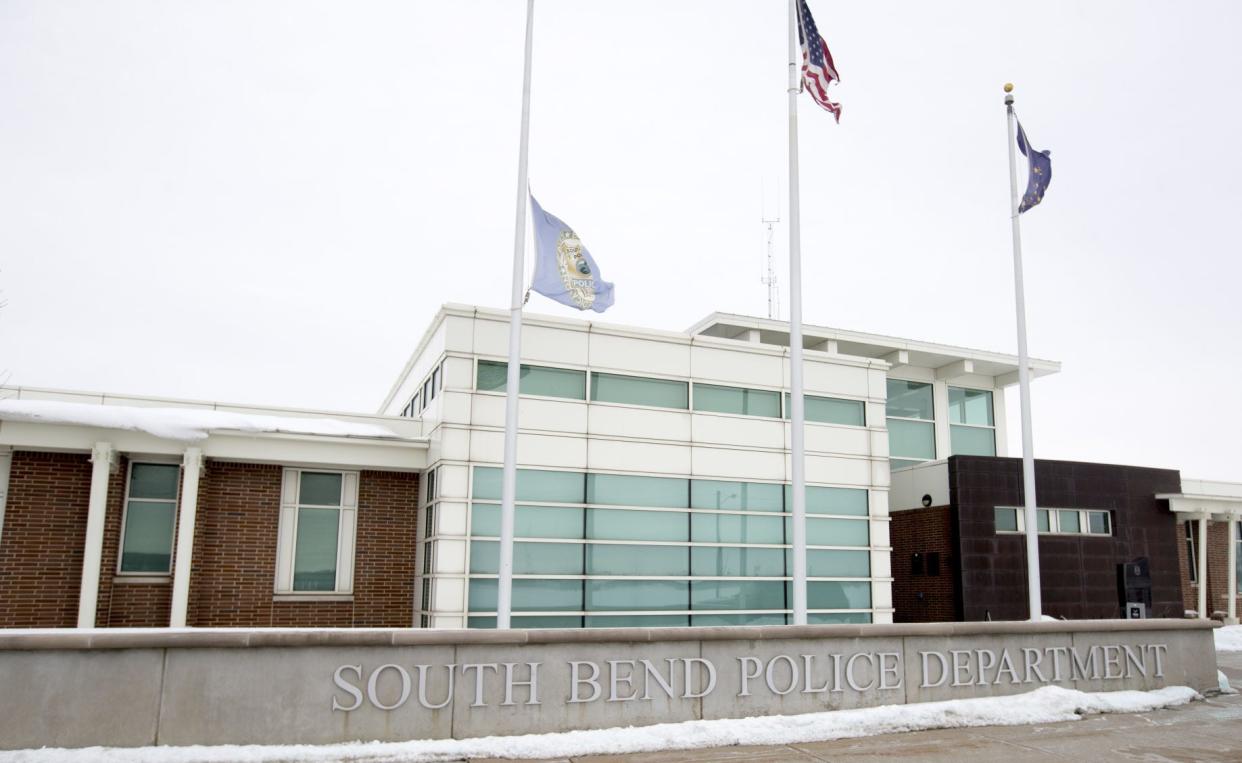South Bend 'police tapes' case could go to Indiana Supreme Court

SOUTH BEND — Legal maneuverings in the South Bend 'police tapes' case continued this week with the Common Council asking the Indiana Supreme Court rule on whether a group of officers has legal standing to challenge the release of the long-sought-after recordings.
The council's Monday filing comes after the Indiana Court of Appeals in June found that the group of current and former South Bend officers could challenge the release of the tapes. Last year, St. Joseph Superior Court Judge Steven Hostetler ruled the officers did not have legal standing and the council now hopes the supreme court accepts the case and agrees with Hostetler's interpretation of the issues.
Wrongful conviction?Elkhart woman fights to clear her name, accuses Elkhart officials of framing her for murder
The appeals court's recent ruling had set the case back on track for a trial to finally determine whether it was illegal to release the tapes — which supposedly contain racist comments and discussions of illegal activity. If the supreme court takes up the appeal, the case could be bogged down for months as the court deliberates on whether the tapes should be awarded to the council or whether the case should go to trial for a jury to decide.
It is unclear how long it will take the supreme court to decide whether it will hear the council's appeal.
History of the tapes
The council's appeal is the latest turn in a decade-long legal struggle over the tapes that has led to a federal criminal investigation, generated multiple related lawsuits and became a topic in the presidential campaign of former South Bend Mayor and current Transportation Secretary Pete Buttigieg.
The issue dates back to the winter of 2011, when a former communications director with the South Bend Police Department came across recorded phone calls on the line of Brian Young, a captain at the time, while she was troubleshooting equipment. Young had unknowingly inherited a telephone line that previous officers used to record calls.
The then-communications director, Karen DePaepe, has indicated some of the recordings contain racist language and comments that are “disturbing and possibly liable” to the police department, according to city and court records. She alerted then-police chief Darryl Boykins to the calls about two weeks later, at which point he allowed the recording to continue.
The existence of the recordings became public in early 2012, when Buttigieg demoted Boykins and fired DePaepe amid a federal investigation into possible violations of the Federal Wiretap Act. The Common Council demanded the recordings, but the city administration has refused to hand them over unless a court ruled it would not be illegal to release them.
The council sued and the officers counter-sued to block the disclosure of the recordings. The former officers are Brian Young, Tim Corbett, David Wells, Steve Richmond, Sheldon Scott, James Taylor and Scott Hanley. Corbett formerly served as commander of the St. Joseph County Metro Homicide Unit, while Wells and Richmond served as assistant commanders on the unit before it disbanded at the start of this year.
After nine years of bouncing between courts and procedural delays, the case was set to go before a jury in May 2021. However, in filings shortly before the trial date, the council argued that some officers settled their claims in the case while the rest lacked standing because testimony from DePaepe indicated they weren’t on the tapes.
Hostetler agreed with the council and with no one left to challenge the council’s subpoena, he ruled the tapes should be handed over; however, the central question of whether it would be legal to release those tapes was not solved.
The officers appealed a few months later and the decision from the court of appeals reverses all of Hostetler’s key findings. Namely, Judge Terry Crone's opinion agreed with the officers' interpretation of events that they while they accepted a monetary settlement in exchange for the case to be dismissed, they also reserved the right to remain as parties to attempt to prevent the tapes from being disclosed.
In its appeal, lawyers for the council argue against Crone's ruling, saying it goes against legal precedent and that the settlement the officers entered into should have dismissed their claims in their entirety.
Email Marek Mazurek at mmazurek@sbtinfo.com. Follow him on Twitter: @marek_mazurek
This article originally appeared on South Bend Tribune: State supreme court could hear appeal in South Bend police tapes case

